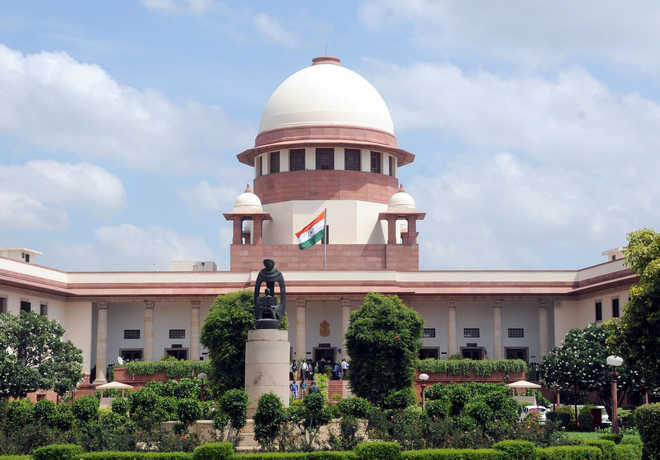Supreme Court dismisses petitions seeking review of Article 370 case verdict
Date:- 22 May 2024

The Supreme Court has dismissed petitions seeking review of its December 11, 2023 verdict upholding the Centre’s decision to abrogate provisions of Article 370 of the Constitution that gave special status to the erstwhile state of Jammu and Kashmir.
“Having perused the review petitions, there is no error apparent on the face of the record. No case for review under Order XLVII Rule 1 of the Supreme Court Rules 2013. The review petitions are, therefore, dismissed,” a five-judge Bench led by CJI DY Chandrachud said in its May 1 order made public on Tuesday.
The other judges on the Bench were Justice Sanjiv Khanna, Justice BR Gavai, Justice Surya Kant and Justice AS Bopanna.
In a unanimous verdict, a five-judge Constitution Bench led by CJI Chandrachud had ruled that Article 370 of the Constitution was a temporary provision and the President had the power to abrogate the provision which was an interim arrangement due to war conditions in the state. It had also directed the Election Commission to hold elections in the union territory of Jammu and Kashmir without waiting for restoration of statehood by September 30, 2024.
Petitioners Jammu and Kashmir High Court Bar Association, Awami National Conference, Muzaffar Iqbal Khan and Jammu and Kashmir People’s Movement had contended that the Constitution Bench reached “erroneous conclusions”.
However, the top court said there was no error apparent on the face of the record. Review petitions are generally heard “in chamber” by the same judges who decided the case — and not in an open court — by a procedure called “hearing by circulation”, where advocates representing the parties are not allowed to argue. But in exceptional cases, the top court allows open court hearing, if convinced about its need.
In this case, however, the top court refused permission to appear and argue in person. The petitioners had contended that the December 11, 2023 verdict erroneously concluded that the erstwhile state of J&K lost its sovereignty after Maharaja Hari Singh signed the Instrument of Accession (IOA) in 1947. “It is submitted that the conclusion suffers from an error apparent on the face of records. Mere execution of IOA, without anything more, does not result in loss of total sovereignty,” the petitioners had said.
Courtesy: The Tribune India: 22nd May , 2024


